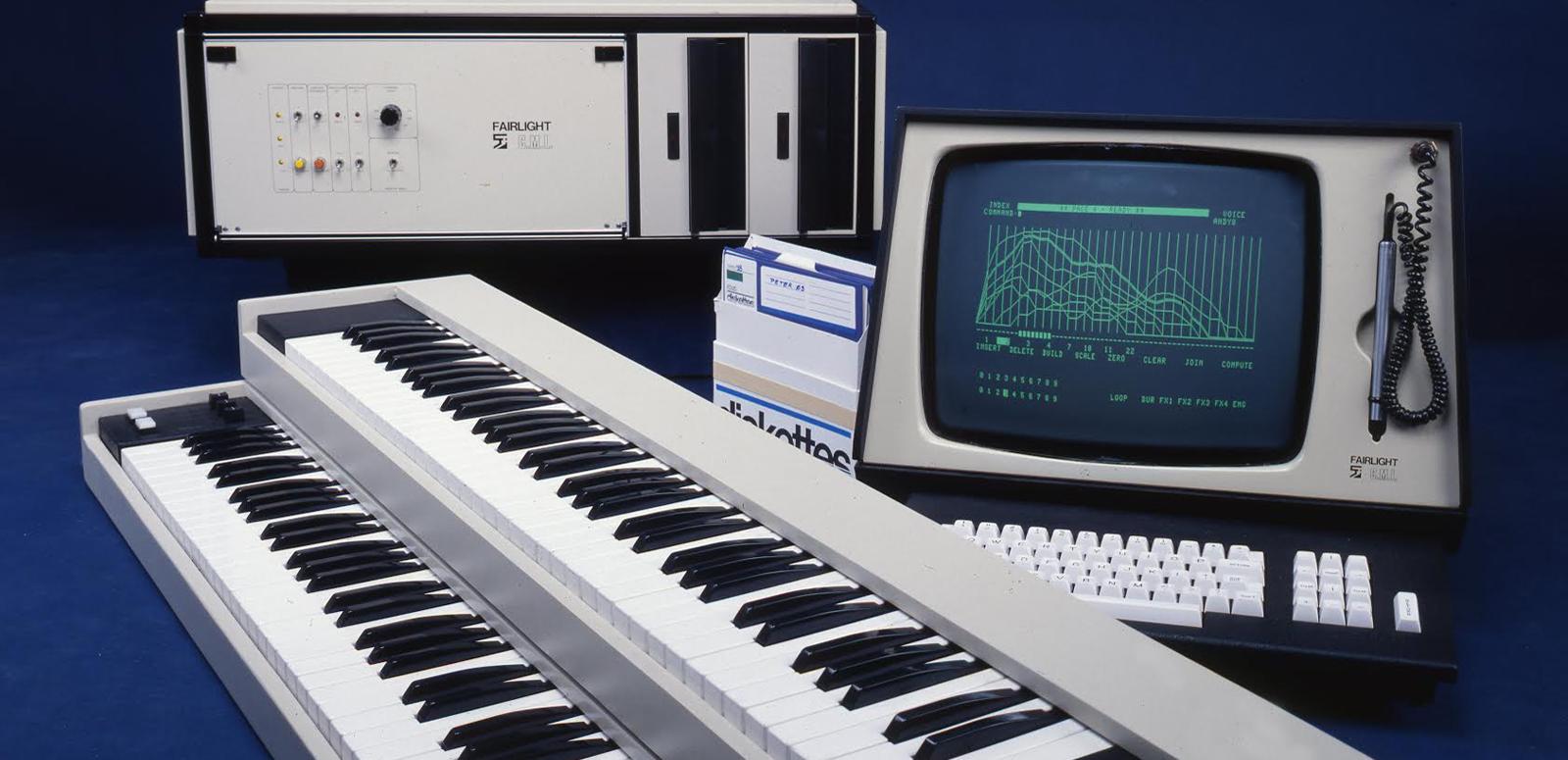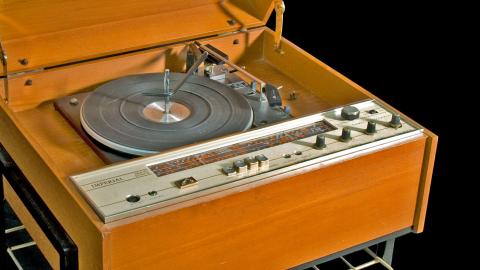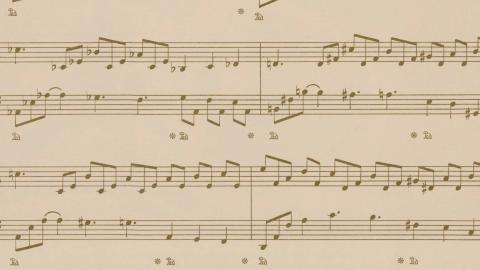

Fairlight
The Fairlight Sampling Synthesizer
The Fairlight CMI Sampling Sounds (1979-1989) were added to the NFSA’s Sounds of Australia in 2015.
The Fairlight was the first digital synthesizer and sampler. It was invented by two young Australians, Kim Ryrie and Peter Vogel (pictured), in 1979. The Fairlight got its name from a hydrofoil (itself named after the Sydney suburb Fairlight) which Ryrie and Vogel saw pass by as they worked on their invention in Ryrie’s grandmother’s Point Piper garage.
We take sampling technology for granted today, but at the time it was a revelation for a computer to be able to store (on floppy disc) and manipulate recorded natural sounds.
The Series III Fairlight CMI (Computer Musical Instrument) below was used by composer Peter Best to compose and arrange soundtracks for a number of films, television programs and advertisements from the mid-1980s until early 2000.
Titles composed and arranged by Peter Best on the system include many Australian classics: Crocodile Dundee (Peter Faiman, Australia, 1986), Crocodile Dundee II (John Cornell, Australia, 1988), The Leaving of Liverpool (Michael Jenkins, Australia, 1992) and Muriel’s Wedding (PJ Hogan, Australia, 1994).
In 1997 Best won the Australian Film Institute (AFI) Award for best original music score for Doing Time For Patsy Cline (Chris Kennedy, Australia, 1997).
An excerpt from High Tide (1987), featuring one of the first film soundtracks produced entirely with a sampling synthesizer.Produced by Sandra Levy, directed by Gillian Armstrong NFSA title: 49303
An excerpt from High Tide (1987), featuring one of the first film soundtracks produced entirely with a sampling synthesizer.
Produced by Sandra Levy, directed by Gillian Armstrong NFSA title: 49303
Best used the machine to produce the haunting soundtrack for High Tide (Gillian Armstrong, Australia, 1987). It was one of the first film soundtracks produced entirely with a sampling synthesizer and has an unmistakably 80s sound with the sampled instruments taking on an otherworldly quality. In this clip, Bet (Jan Adele) discovers her daughter-in-law Lilli (Judy Davis) at the caravan park where Bet lives with her granddaughter Ally (Claudia Karvan). Ally does not know that Lilli is her mother, and here the soundtrack simultaneously echoes the seaside location while also underlining the complicated relationships between the three women, Ally’s innocence and Lilli’s sadness.
Above: Fairlight Series III user interface
Ian Gilmour and members of the collection stewardship team at the NFSA performed essential restoration on the system (foam from the casing had decayed and left a sticky residue on the machine which was removed with a hot air gun). The system still works and has been preserved in the configuration Best last had it in (apart from replacement video monitors). Purpose-built packaging will make sure this piece of Australian cultural history can be stored safely.
The Fairlight CMI was used by many high profile artists, including Kate Bush, Thomas Dolby, Herbie Hancock, Stevie Wonder, Peter Gabriel, Iva Davies (of Icehouse) and Nick Rhodes of Duran Duran. Kate Bush’s Never for Ever (1980) was the first commercially released album to use the Fairlight.
Fairlight went bankrupt in the late 80s, but Ryrie and Vogel are still innovating. In 2012 Vogel started producing the CMI-30AX – a limited edition 30th anniversary collector’s edition of the Fairlight. There is also a CMI app available for Apple iPad and iPhone. To give an idea of how much technology has advanced in 30 years, the Series III sold for approximately £50,000 in 1985 (adjusted for inflation, this equates to roughly AU$289,000 today). In 2015 you can buy the iPad app, which includes the original CMI sound library, for $49.95.
Learn about some of the precursors to the Fairlight at the 120 Years of Electronic Music project website.
The National Film and Sound Archive of Australia acknowledges Australia’s Aboriginal and Torres Strait Islander peoples as the Traditional Custodians of the land on which we work and live and gives respect to their Elders both past and present.


